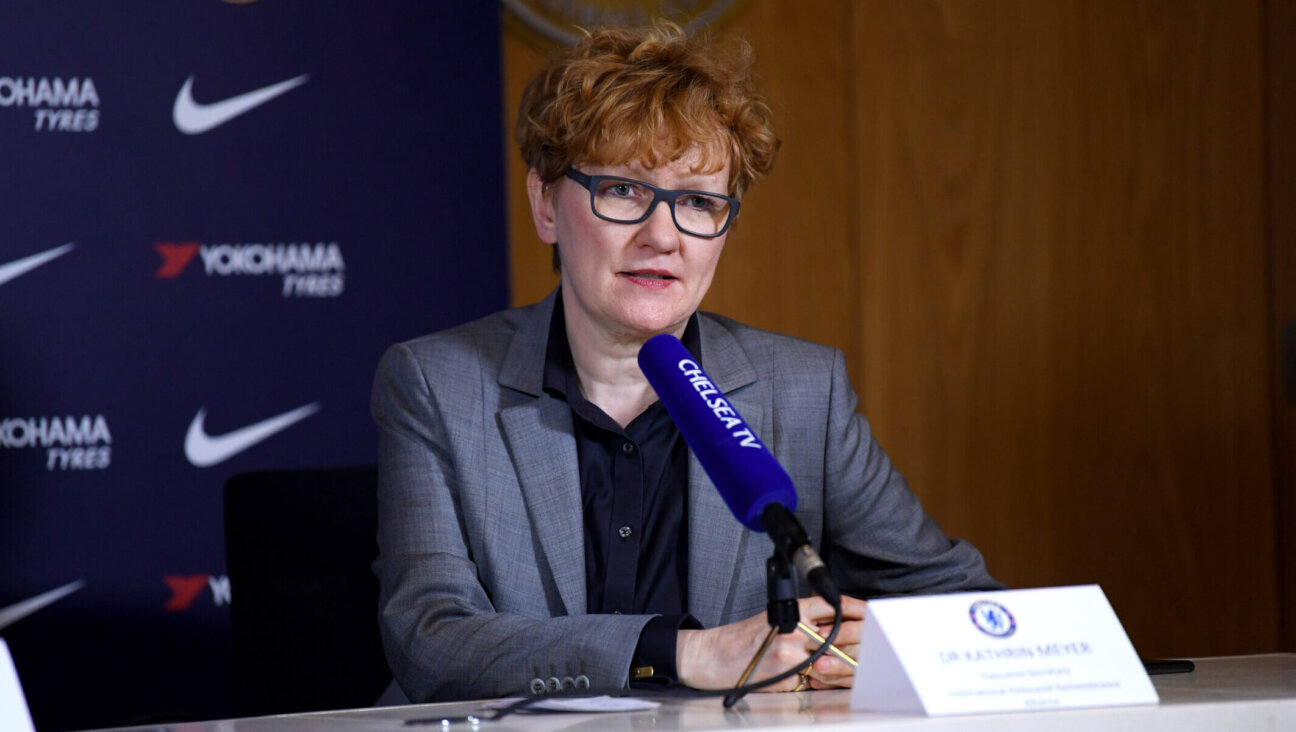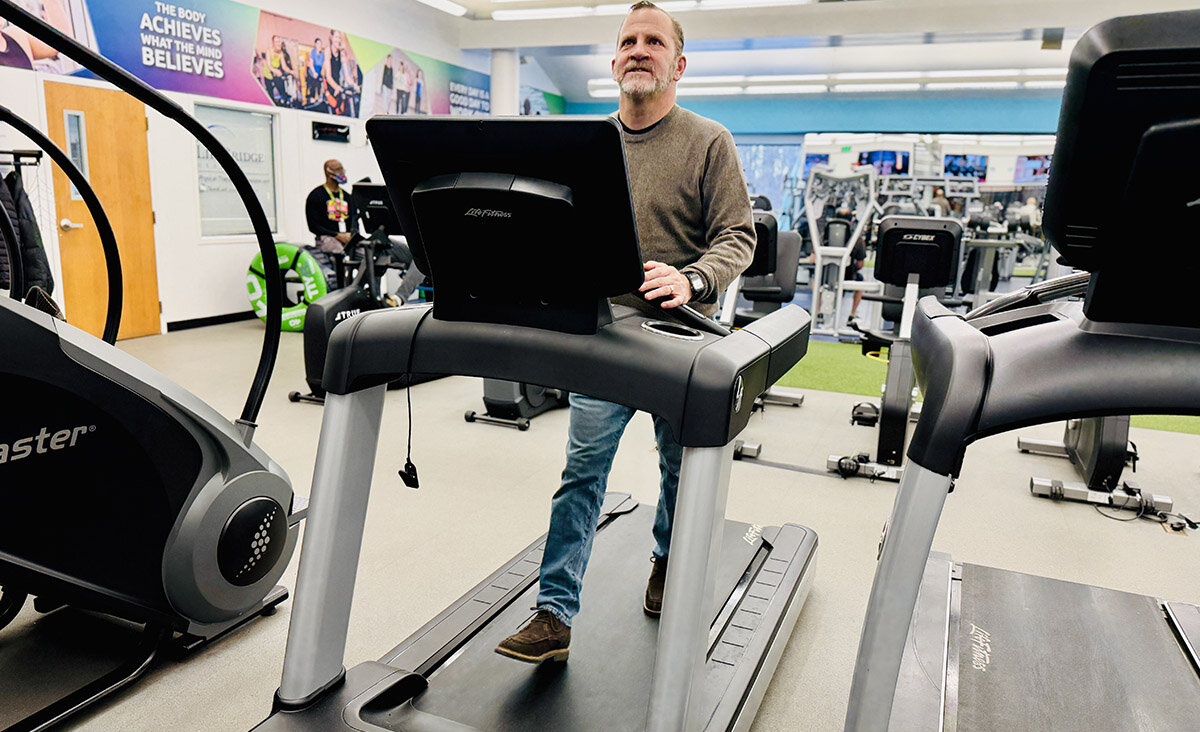How a Student’s Clown Suit Led to Charity for Children
Instead of heading out to a local hangout or his Upper West Side bachelor pad after a hard day’s work, Joseph Weilgus would rather don his polka-dot clown suit, apply face paint and take the subway to the pediatric unit at Harlem Hospital for the evening.
A double life seems to suit the 26–year old. A certified public accountant working in client relations at American Express, Weilgus also moonlights as the founder and chairman of Project Sunshine, a not-for-profit group that provides free programs and services to children with serious illnesses.
Founded six years ago, the national organization held its first gala fundraiser on April 21, raising more than $250,000. The dinner, which also marked the formation of the organization’s 50th chapter, was held at the Waldorf Astoria Hotel in Manhattan and boasted A-list attendees: TV hosts Barbara Walters and Joel Siegel; Grammy winner Natalie Cole, and Vogue magazine editor Anna Wintour. Bear Stearns chairman Ace Greenberg even chipped in with entertainment, performing magic acts during the cocktail hour.
The big-name appeal is impressive for any organization — the board of directors includes prominent business and philanthropic leaders — even more so for a project founded in a college dorm by an Orthodox kid from Monsey, N.Y.
As a sophomore at Yeshiva University, in 1997, Weilgus visited a handful of children at a local hospital. To entertain them he bought a clown costume and learned how to apply makeup and perform tricks.
“Behind the mask of a clown costume you can be whatever you want,” said Weilgus, who claims he used to be somewhat shy and has since found himself singing Barney songs with kids on the subway and high-fiving doormen in his neighborhood. “I learned to make a fool of myself, until I realized I can do it without the costume.”
Weilgus wasn’t prepared for the myriad requests he began receiving from parents, social workers and nurses who tracked down his phone number. “As I became more entrenched in the hospital by being a clown, I started to see that there were certain needs that needed to be filled, and I was surprised that they weren’t,” he said.
In his first year of clowning around, Weilgus asked his classmates and fellow interns from his summer job at PricewaterhouseCoopers to pitch in, organizing Superbowl parties at the hospital or sleeping there overnight so parents could take a break.
In 1998, Weilgus incorporated Project Sunshine because he “was getting donations of toys and I needed to give tax receipts,” and he began recruiting students to start chapters at different campuses.
“I realized I needed to start programs in different time zones just so I could have more time to do it,” joked Weilgus, a natural-born juggler, who was managing 1,500 volunteers in his senior year.
Although proud of its celebrity appeal, Weilgus insists that the true credit is owed to Project Sunshine’s volunteers, who are mostly college, graduate and medical students, and young professionals.
“It seems like it’s something that this age group has more time for, since they have more flexible schedules and want to do some type of community project,” said Amy Saperstein, the executive director of Project Sunshine, one of the organization’s two full-time staff. In the past few years the organization has mainly relied on word-of-mouth publicity for its volunteers, hospitals and families.
The enterprise has been a hit on campuses nationwide, as volunteers clamor to tutor children, form special athletic leagues or throw parties at pediatric wards. For example, over 5,000 students applied for 400 volunteer spots at Texas A&M University’s chapter.
“I could show you hundreds of students who changed their majors because of us, because we changed their perspective,” said Weilgus. “We pride ourselves on how we leverage people to do different things, and how we create leaders in different communities.”
Project Sunshine tailors its programming to the needs of the local hospitals and agencies it serves. The non-denominational organization has 5,000 volunteers working in more than 23 states with 100,000 children, most of whom have serious illnesses such as cancer, diabetes, asthma and sickle cell anemia.
One volunteer is Ileana Abrams, a 25-year-old Manhattanite who has been a big buddy for three years to a girl with familial dysautonomia, a rare Ashkenazic genetic disease that causes dysfunction of the autonomic and sensory nervous systems, impairing such abilities as detecting pain, digesting food and liquids and breathing properly. Abrams travels two hours each Sunday to hang out with 10-year-old Gabi Jassie at her home in Queens; Jassie even attended Abrams’ wedding in St. Louis last year, at which she was a junior bridesmaid.
“Joseph [Weilgus]’s enthusiasm is contagious,” said Howard Weiser, a Project Sunshine Board member and a partner at PricewaterhouseCoopers, who is hopeful that the organization will grow both nationally and internationally. “You can’t say no to the guy. He’s so sincere in what he wants.”
The young founder has already won the 2002 Nonprofit Entrepreneur Award from Harvard Business School Club of New York, and last August was named “New Yorker of the Week” by NY1. Nowadays, though he still loves to visit children at hospitals, Weilgus is pinched for time between his day job in finance and his administrative work at the nonprofit. He already consolidates his numerous duties, often soliciting his business contacts to volunteer for or contribute to Project Sunshine.
Weilgus accepts the curses of becoming an administrator, knowing the end result is worth the sacrifice. “I love the one-on-one with the child, but I can’t be selfish,” said Weilgus, who carries in his wallet a snapshot of Cody — one of the first children he visited, who has since died. “If I have the opportunity to facilitate thousands of people doing this, then I have to.”
A message from our Publisher & CEO Rachel Fishman Feddersen

I hope you appreciated this article. Before you go, I’d like to ask you to please support the Forward’s award-winning, nonprofit journalism so that we can be prepared for whatever news 2025 brings.
At a time when other newsrooms are closing or cutting back, the Forward has removed its paywall and invested additional resources to report on the ground from Israel and around the U.S. on the impact of the war, rising antisemitism and polarized discourse.
Readers like you make it all possible. Support our work by becoming a Forward Member and connect with our journalism and your community.
— Rachel Fishman Feddersen, Publisher and CEO























